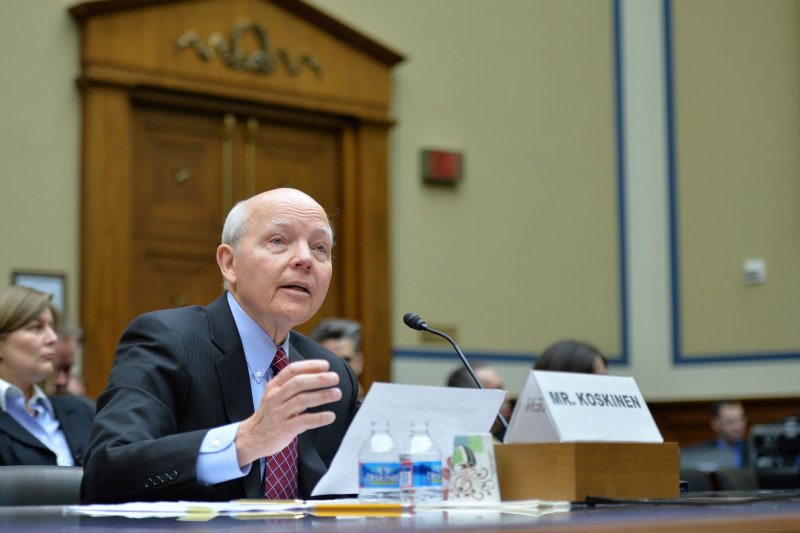Internal Revenue Service (IRS) Commissioner John Koskinen testifies during a House Oversight and Government Reform Committee hearing on the IRS targeting scandal, on Capitol Hill in Washington, D.C. on March 26, 2014. UPI/Kevin Dietsch |
License Photo
WASHINGTON, May 22 (UPI) -- The Internal Revenue Service is scrapping the proposed rules on political activities that were at the heart of the scandal in which the agency was accused of deliberately targeting conservative groups.
After revelations that IRS employees were giving extra scrutiny to non-profits with tea party-related names during the application process for tax exempt status, the agency publicized the rules in an effort to give further guidance on how it determined whether the groups were engaging in too much political activity to qualify.
Response to the rules was swift and brutal: Groups across the political spectrum submitted more than 150,000 comments calling them too broad and an attempt to attack free speech.
IRS Commissioner John Koskinen Thursday confirmed that the rules would be revised.
"It is likely that we will make some changes to the proposed regulation in light of the comments we have received," the IRS said in a statement. "Given the diversity of views expressed and the volume of substantive input, we have concluded that it would be more efficient and useful to hold a public hearing after we publish the revised proposed regulation."
The IRS has said it was seeking to use nonprofits names to help sort through an influx of applicants for tax-exempt status after the Supreme Court ruling Citizens United in 2010 opened the door to the creation of political SuperPACs, which could collect unlimited donations without revealing their donors. Despite the ongoing political fallout, including the House of Representatives vote this month to hold former IRS direct of tax exemptions Lois Lerner in contempt of Congress, reports found the IRS had searched for a bipartisan list of terms, but the list was heavily weighted toward the tea party because it was a new movement at a time and saw a corresponding influx of political groups.
Tax law says groups that qualify for tax exempt status -- 501(c)(4) groups -- must be organized to "exclusively" promote social welfare. The IRS has interpreted that to mean the group can't "primarily" conduct political activities, although it has not defined how to make that measurement.















